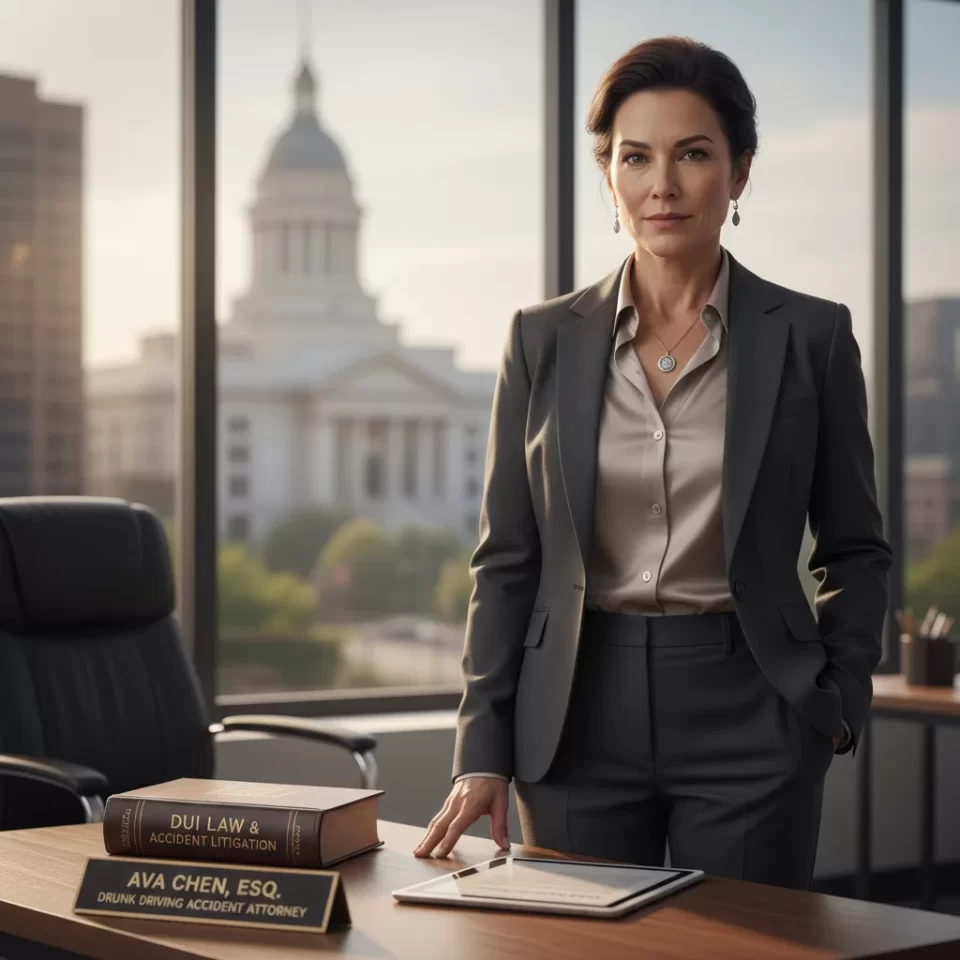- Home
- Sexual Abuse
- Sexual Abuse Lawsuit
Sexual Abuse Lawsuit
- February 15, 2026
-
Sarah Miller
- Fact Checked By Our Attorneys
Survivors of sexual abuse have the right to pursue justice through a Sexual Abuse Lawsuit, even if no criminal charges were filed. These legal claims allow survivors to hold individuals and institutions accountable, including schools, churches, youth programs, and other organizations that failed to protect them. A lawsuit can also provide financial compensation for the lasting impact of sexual assault, childhood sexual abuse, or child sexual abuse.
Legal Claim Assistant connects sexual abuse victims with an experienced sexual abuse attorney who will listen to their story, explain their options, and offer a free case review to help them take the first step toward justice.
No Win, No Fee. Let the Best Sex Abuse Attorneys Fight for your Compensation!
Key Takeaways:
Survivors of sexual abuse can file civil lawsuits even if no criminal case was pursued or proven.
- Lawsuits may hold institutions like schools, churches, youth camps, and juvenile detention centers accountable for enabling abuse.
- The legal process includes case review, evidence gathering, filing a complaint, discovery, negotiations, and trial if needed.
- Free, confidential case reviews with an experienced sexual abuse Attorney help survivors understand their options and take the first step toward justice.
Find out your eligibility in 2 minutes
If you or your child has suffered sexual abuse, you are not alone. Countless survivors and families share the same struggle and the same search for justice. We connect you with dedicated sexual abuse attorneys who will listen with care, defend your rights, and guide you step by step through a legal claim to pursue the compensation you deserve.
Start your free and confidential case review today.

What Is a Sexual Abuse Lawsuit
A sexual abuse lawsuit is a civil claim that allows victims of sexual abuse to hold both abusers and negligent institutions accountable. Unlike criminal cases, which focus on punishment, civil claims seek justice by pursuing compensation for the survivor’s emotional distress, medical expenses, and other damages. These cases can run separately or alongside criminal prosecutions for sexual violence or sexual misconduct.
Victims of sexual abuse may bring civil claims against individual sexual predators or institutions that failed to prevent future abuse such as schools, youth organizations, religious institutions, juvenile detention centers, nursing homes, or even the Catholic Church.
A sex abuse lawsuit can help survivors secure damages, expose negligent hiring practices, and prevent vulnerable children or other at-risk individuals from being harmed in the future.
“Filing a sexual abuse lawsuit is not only about seeking compensation, it’s about holding abusers and institutions accountable so no other child has to suffer the same harm.”
Who Can File a Child Sex Abuse Lawsuit
Many survivors qualify to file child sexual abuse claims or other civil actions, even years after the abuse occurred. Adults who were sexually abused as children often have the right to pursue compensation under updated statute of limitations laws.
An experienced sexual abuse attorney can review your situation and explain whether you may be eligible.
You may qualify for a sex abuse lawsuit if:
- The abuse involved sexual acts or skin-on-skin contact
- The abuser is known
- The abuse occurred multiple times and within an institution that still operates (such as the Boy Scouts, religious institutions, or juvenile detention centers)
- The claim falls within the statute of limitations window for sex abuse cases
- You do not currently have legal representation
Survivors do not need perfect proof or physical evidence to take legal action. Even if abuse allegations happened years ago, an experienced sexual abuse attorney can evaluate your civil case and explain the legal process.
No Win, No Fee. Let the Best Sex Abuse Attorneys Fight for your Compensation!
Who Can Be Held Liable
In many sexual abuse cases, responsibility goes far beyond the individual abuser. Survivors have the right to bring civil claims not only against the person who committed assaults but also against institutions that knew or should have known abuse was happening.
Like:
- Schools
- Catholic Churches
- Mormon Churches
- Clergy Members
- Daycares
- Boarding schools
- Youth Sports Organisations
- Universities
- Foster Care Programs
- Youth camps
- Youth sports organizations
- Juvenile detention centers
Liability may stem from negligent hiring, failure to conduct proper criminal background checks, or ignoring abuse allegations that raised concerns. Civil court allows victims of sexual abuse including cases involving child abuse, nursing home abuse, or juvenile detention abuse to hold organizations accountable for civil liability.
By filing a sex abuse lawsuit, survivors can seek compensation for medical expenses, mental health treatment, and emotional distress while also pursuing punitive damages against institutions that enabled sexual predators. Taking legal action not only helps survivors seek justice but also prevents future abuse in vulnerable environments.

What Evidence Helps a Sexual Abuse Lawsuit
Survivors of child sex abuse and cases involving minors often fear they lack enough evidence to prove what happened. In reality, civil court recognizes that sexual misconduct, sexual molestation, or even grooming often occurs in private, and testimony is considered powerful evidence.
Along with a survivor’s sworn statement, other supporting material can include witness accounts, institutional records, past complaints, or ignored safety warnings. Documents showing mental health struggles such as post-traumatic stress disorder (PTSD), therapy notes, or medical reports of physical trauma and physical assault can also strengthen sex abuse claims.
Other important forms of proof include digital communications, timelines of abuse, or evidence that institutions such as the Roman Catholic Diocese, Roman Catholic Archdiocese, or the Boy Scouts ignored reports of misconduct.
Even without direct physical evidence, patterns of misconduct, histories of sexual harassment, or prior abuse allegations against clergy members, police officers, or staff at detention centers may establish liability.
FREE!
Find out if you're eligible and may be eligible for compensation.
Get your Free Case Review and Maximize You Payout With the Help From Legal Claim Assistant.
Statute of Limitations for Sexual Abuse Lawsuits
Every state sets a statute of limitations (SOL) that limits how long survivors who were sexually assaulted can file a civil claim. In many places, lawmakers have extended or revived filing windows for child sex abuse and cases involving minors, recognizing that it often takes years for survivors to come forward. However, timing is critical missing the deadline could mean losing the chance to hold abusers accountable in civil court.
If you experienced sexual battery, sex trafficking, or human trafficking, or if you believe an institution ignored suspected abuse, it’s important to speak with an experienced Sexual Abuse Attorney as soon as possible. An Attorney can confirm if your case still falls within the legal timeframe and guide you on how to file a sexual abuse lawsuit in your state.
Acting quickly protects your rights, ensures evidence is preserved, and maximizes your opportunity to pursue justice. For additional context on differences in filing deadlines, visit our Sexual Assault resource.
“The statute of limitations doesn’t erase the pain of abuse, but missing the deadline can erase your chance for justice.”
What Compensation Can Survivors Seek In Sex Abuse claims
Survivors of sexual abuse cases can pursue compensation that reflects both financial losses and the emotional impact of abuse. Economic damages may cover medical expenses, therapy costs, and lost income due to long-term effects like PTSD or physical injuries.
Non-economic damages address pain, suffering, and loss of quality of life, while punitive damages may be awarded in egregious cases to punish institutions or individuals who enabled or committed the abuse.
Every case is different. The value of a sex abuse lawsuit depends on factors such as the defendant, venue, type of abuse (including sexual battery, sex trafficking, or human trafficking), and whether the institution ignored or failed to address suspected abuse or medical negligence.
Courts may also consider intentional infliction of emotional distress when awarding damages. While no settlement can undo the harm, financial recovery helps support survivors in accessing mental health care, rebuilding stability, and holding perpetrators and institutions fully accountable.
To better understand what your claim may be worth, connect with a trusted Sexual Abuse Attorney for a free and confidential case review.
Legal Process of How to File a Sexual Abuse Lawsuit
Filing a sexual abuse lawsuit may feel overwhelming, but the legal process is designed to help survivors pursue justice while protecting their privacy. The first step is a free, confidential case review with an experienced Sexual Abuse Attorney. Your Attorney will confirm whether your case falls within the statute of limitations, determine the best venue, and identify all possible defendants including both individual abusers and institutions that allowed the abuse.
Next, the attorney will create an evidence plan. This may include testimony, witness accounts, institutional records, or patterns of misconduct identified through Signs of Sexual Abuse. Once evidence is organized, a formal complaint is filed in civil court, often with measures in place to preserve your anonymity.
From there, the case may proceed to discovery, where both sides exchange information. Many claims resolve through negotiations or mediation, but if necessary, survivors can take their case to trial.
Whether the abuse involved clergy members, teachers, coaches, or other trusted adults, understanding how to file a sexual abuse lawsuit or specifically how to file a child sexual abuse lawsuit is the first step toward holding abusers accountable and seeking compensation for the harm done.

Institutional Abuse Examples and Patterns
Many sex abuse cases follow clear patterns of misconduct that point to institutional sexual abuse. Survivors often report repeated access to vulnerable children, grooming behaviors designed to build trust, and warnings that were ignored by leadership.
These red flags have been seen in clergy sexual abuse cases, including those tied to the Catholic Church and clergy members, as well as in other religious contexts like Mormon Church Abuse or Southern Baptist Sex Abuse.
Similar issues have emerged in schools, sports programs, and youth organizations where supervision failed and background checks were skipped. Local communities such as Santa Ana and across the country have seen survivors come forward with accounts of trusted figures abusing their authority.
“When trusted institutions ignore red flags, abuse is not an accident. It’s a pattern that destroys lives.”
Sexual Abuse vs Sexual Assault vs Sexual Battery
The terms sexual abuse, sexual assault, and sexual battery are often used interchangeably, but the law treats them differently. Sexual Abuse usually describes ongoing or repeated misconduct, often involving positions of trust. Sexual Assault refers to unwanted sexual contact or force, and it can cover a wide range of actions.
Sexual Battery is a more specific charge that generally involves unlawful physical contact of a sexual nature. Survivors may also face related issues such as Fondling, Groping, or Grooming. Understanding these distinctions helps survivors choose the right legal path and connect with the right sexual abuse Attorney for their case.
Frequently Asked Questions
Yes. Civil lawsuits are separate from criminal trials. Even if no charges were filed, you can still work with an experienced sexual abuse attorney to pursue compensation through a civil case.
In many situations, courts allow survivors to use initials or pseudonyms, so your privacy is protected while seeking justice.
Thanks to extended statutes of limitations and revival laws in many states, even old cases may still qualify. An experienced sexual abuse attorney can confirm if you are still eligible.
Institutions like schools, churches, and youth programs may be held liable if they knew or should have known about the abuse. Civil lawsuits help hold these organizations accountable.
No. Most attorneys handle sexual abuse cases on a contingency basis, meaning you pay nothing unless your case succeeds.
How Legal Claim Assistant Helps Sexual Abuse Victims
At Legal Claim Assistant, we understand the sensitive and life-changing impact of sexual abuse. That’s why we offer a free, confidential case review with no obligation. Survivors can share their experiences in a safe space, knowing their privacy and well-being come first.
Our team connects you with the right sexual abuse attorney based on your situation and location, ensuring you have an experienced advocate by your side.
Whether your case involves abuse at a school, church, youth program, or another institution, we focus on holding organizations accountable for the harm caused. Survivors should never feel alone in this process, and with the right legal support, it’s possible to seek justice and compensation.
You Deserve Justice. Let Us Help.
Speak with a trusted sexual abuse attorney who will stand by your side, protect your privacy, and fight for the compensation you deserve.
No Win, No Fee. Let the Best Sex Abuse Attorneys Fight for your Compensation!
Under 1 Minute
100% Free
Expert-Reviewed
Private & Secure
© 2025 Legal Claim Assistant. All Rights Reserved.
Terms of Service | Privacy Policy | Contact Us | Marketing Partners
Related Article

How a Drunk Driving Accident Attorney Can Help After a Crash

